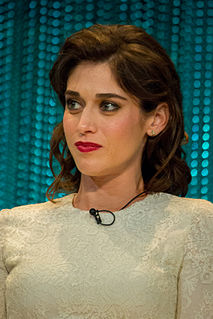A Quote by Julia Stiles
I become so sentimental on planes: I could be watching 'Bridesmaids' and start crying.
Quote Topics
Related Quotes
Nilda is watching the ground as though she's afraid she might fall. My heart is beating and I think, We could do anything. We could marry. We could drive off to the West Coast. We could start over. It's all possible but neither of us speaks for a long time and the moment closes and we're back in the world we've always known.
There is a difference. You watch television, you don't witness it. But, while watching television, if you start witnessing yourself watching television, then there are two processes going on: you are watching television, and something within you is witnessing the process of watching television. Witnessing is deeper, far deeper. It is not equivalent to watching. Watching is superficial. So remember that meditation is witnessing.
I don't want comedy to be Bridesmaids 2. I'm not denigrating Bridesmaids but, enough already, let's stop pretending women are incalculably different to us. Seeking out podcasts, listening on headphones, it's like an intimate, specific conversation. People respond if it feels from the heart. I'm as neurotic a human being as lives, and I have my faults. I'm a drunk. But people really like that.
When you read a book, you generate beta waves irrespective of the book's content. But if you look up from it, and start watching TV - it doesn't matter what the content of the program is - the beta waves disappear and you start processing alpha and theta waves. These are the same waves that you generate during meditation. Reading is primarily left hemisphere and watching television is primarily right hemisphere. Now how could that not have a major effect on our culture?
Each day brought just another minute of the things they could not leave behind. Jane Barrington sitting on the train coming back to Leningrad from Moscow, holding on to her son, knowing she had failed him, crying for Alexander, wanting another drink, and Harold, in his prison cell, crying for Alexander, and Yuri Stepanov on his stomach in the mud in Finland, crying for Alexander, and Dasha in the truck, on the Ladoga ice, crying for Alexander, and Tatiana on her knees in the Finland marsh, screaming for Alexander, and Anthony, alone with his nightmares, crying for his father.




































